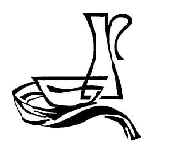History of the Permanent Diaconate
 The origin of the diaconate is often traced to the Acts of the Apostles where the Apostles laid hands on seven men selected by the community to take care of its material needs while the Apostles concerned themselves about the Word of God. Among the original seven was Stephen who later became the first Christian martyr.
The origin of the diaconate is often traced to the Acts of the Apostles where the Apostles laid hands on seven men selected by the community to take care of its material needs while the Apostles concerned themselves about the Word of God. Among the original seven was Stephen who later became the first Christian martyr.
By 57 A.D. it is clear that the diaconate became a separate office in the Church since St. Paul makes specific references to deacons in his letter to the Philippians and to Timothy.
After the Apostolic period the deacons performed varying functions in the church, yet the underlying understanding of all their activities was that they were to help those who directed the Church. More specifically they operated in three major areas: Liturgical, Doctrinal and Charitable. They assisted at the altar, gave instructions to catechumens, ascertained the material needs of the members of the community and tried to assist them accordingly.
The diaconate was discontinued as a permanent state about the fourth century. Some authors ascribe the downfall of the diaconate to the rivalries between priests and deacons. The diaconate became a temporary state of life for men who wished to become priests.
The Second Vatican Council restored the office of the Permanent Diaconate because the duties proper to the office were so very necessary to the life of the Church. The document mentioned such services as celebrating baptism, dispensing the Eucharist, witnessing marriages, presiding at worship, administering sacramentals, officiating at funerals and concern for charity and administration.
Central to the notion of diaconate is that ministry must be seen as service and not as power, privilege, domination or status. It is a gift, a charism, offered for the enrichment of the Church.
In our day the deacon is a unique position in the Church. He has to meet demands on many different levels. He leads a life of service to the Church while at the same time supporting his family and following his secular career. He is a very busy man, but strives also to be a man of prayer and meditation. In the best sense, he is a reminder to all of us of what we are called to become.
The restoration of this office to married men also reminds us that both married and celibate Christians are equally called to witness to the Kingdom of God by building the network of love and service.
After ordination each man receives an assignment directly from his Bishop. Deacons here are ordained for the Church in the Rockford Diocese. Most are assigned to parish ministry, but some are moving into other specialized areas of ministry: hospitals, prison, marriage preparation. Raising awareness of and being involved in social justice issues is a significant aspect of diaconal ministry.
